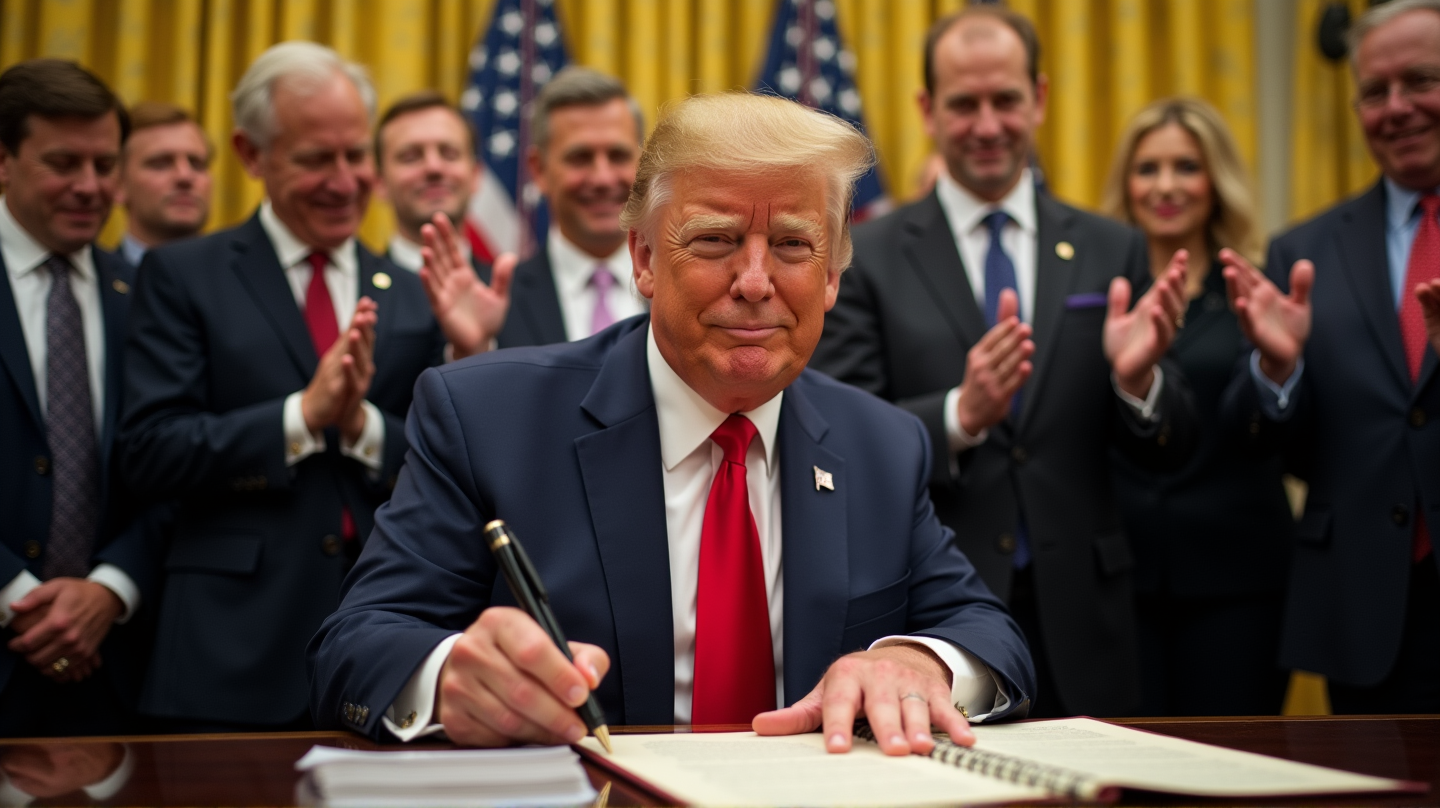In an epoch-making moment for the cryptocurrency world, President Donald Trump has signed into law a set of landmark regulations for stablecoins, marking a significant stride in legitimizing the once highly-scrutinized industry. This monumental step comes as part of the recent GENIUS Act, which sets the ground rules and consumer protections for stablecoins, and signals a new era of unity between digital currencies and Washington’s corridors of power.
The Dawn of New Regulations
The GENIUS Act, which stands for “Guiding and Establishing National Innovation for U.S. Stablecoins,” passed through both the House and the Senate with overwhelming bipartisan support. Its core purpose is to enhance consumer trust in stablecoins, a derivative of cryptocurrency that pegged its value to stable assets like the U.S. dollar. With such measures, Trump aims to bolster the image of the U.S. as the burgeoning “crypto capital of the world.”
A Political and Economic Catalyst
Unquestionably, the new law is not just a victory for the crypto industry but also a reflection of its growing political influence. According to Delta Optimist, Trump’s backing comes with strategic intent: garner support from a community once at odds with governmental scrutiny. During the prestigious White House signing ceremony, Trump acknowledged, “For years you were mocked and dismissed… This signing is a massive validation of your hard work and pioneering spirit.”
Shifting Power Dynamics
Interestingly, the crypto realm has found a staunch supporter in Trump, who previously held a skeptical stance. His administration has taken decisive actions to de-escalate disputes, with key entities like the Securities and Exchange Commission reducing their regulatory grip on crypto, marking a clear departure from the previous administration’s approach.
Provisions and Ambiguities
While the GENIUS Act presents itself as a beacon of advancement, it does spark discussions with its provision that bans Congress members and families from profiting from stablecoins, a restriction not extended to the President and his kin. This raises questions about ethical boundaries, especially with Trump’s family’s significant stake in crypto ventures like World Liberty Financial.
Looking Ahead: An Uncertain Brink
Alongside the GENIUS Act, the House has approved additional initiatives that create a fresh market structure for cryptocurrencies and restrict the Federal Reserve from introducing a new digital currency. These actions echo the broader strategic positioning of the United States amidst global digital currency developments.
President Trump’s commitment to cultivating the U.S. crypto landscape, underscored by his historic legislation signing, sets a promising yet uncharted path forward. With global markets watching closely, what unfolds next could very well redefine finance, technology, and power dynamics across nations.
